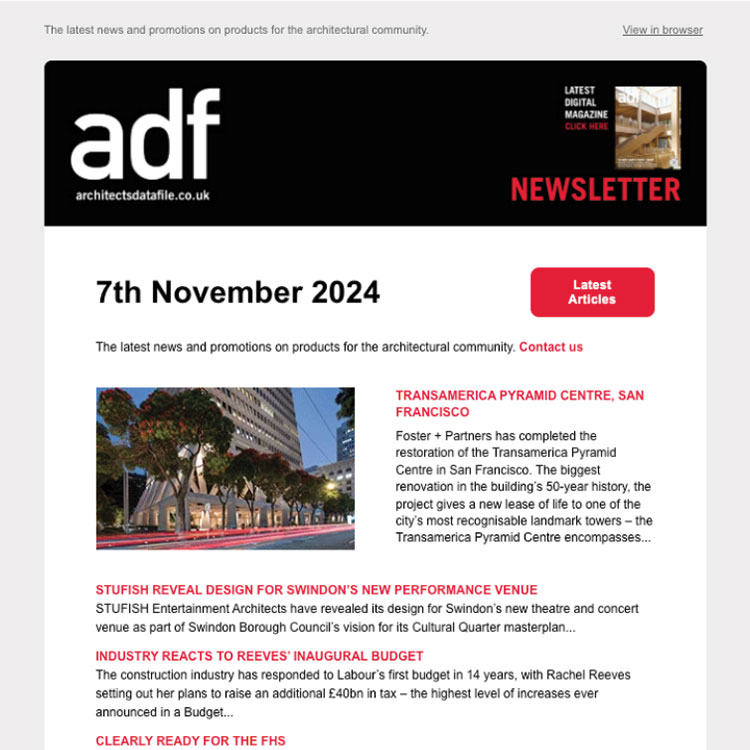The London Festival of Architecture (LFA), in partnership with the Royal Academy of Arts has launched its call for papers for the annual LFA Symposium.
Now in its third year, the LFA Symposium has “established itself as one of the key events in London’s architectural calendar and will provide an exceptional platform for participants to share and develop their thinking on the Festival’s 2020 theme of ‘power’, and its relationship with people and architecture” said the event organisers.
All academics, researchers and practitioners – both emerging and established – are welcome to apply to participate and present work that centres around the notion of ‘power’ in the Symposium, which will be held at the Royal Academy on Thursday 11 June. Exploring the culture and built environment of our cities, applicants are further encouraged to consider the connections between ‘power of the place’ and ‘power of the people’, which could include:
Power of the place
Physical expressions of power in the built environment – monumentality then and now
Critical assessments of the effects these built forms have on the people who live with their legacy and how it affects different generations
Agency of the architect in negotiating and blurring power relations
The use of architectural brands to communicate power
Power of the people
People using the built environment as a tool to affect change, e.g. protest and occupation or ‘urban commoning’
Authority – who holds the power amongst the web of stakeholders? Does it lie with regulator, planners, landowners, designers or, is the public in ultimate control?
Power shifts in the workplace, questions around the ways power is distributed along lines of class, gender and race
Entrants are invited to submit an initial expression of interest, including a 300-word abstract and a one-page CV, by 3.00pm on Monday 10 February 2020. More information on submission requirements can be found here.
The second annual LFA Symposium in 2019, ‘Thresholds or barriers?’, saw prominent architects, academics and commentators come together to challenge and offer a new perspective on the role and application of boundaries in architecture and placemaking. Previous keynote speakers include Farshid Moussavi OBE RA (Director of Farshid Moussavi Architecture), Eyal Weizman (Director of Forensic Architecture and Professor of Spatial and Visual Cultures at Goldsmiths, University of London) and Mary Duggan (Founding Director, Mary Duggan Architects).
Since being established in 2018, the LFA Symposium has been run in partnership with the Royal Academy of Arts as a focal point of the Festival’s summer programme, with the 2020 event promising to continue this rich exploration of the annual theme.
Tamsie Thomson, director of the London Festival of Architecture, said:
“Each year, we pride ourselves on an LFA programme that buzzes with a remarkable diversity of events. From comedy and hand-on activities to get stuck into, to the significant opportunities that the Symposium offers in debating our annual theme, we are delighted to see this festival favourite return for a third edition.
We are grateful for the continued support of the Royal Academy in helping us shape this platform, enabling voices from across the industry to start a conversation with their bold and original ideas. Our 2020 theme builds upon many timely issues, both in architecture and our society, and I’m looking forward to seeing responses that can capture, challenge and explore the relationship between power, people and our built environment, and what this means for our profession.“
Vicky Richardson, curator, writer and visiting lecturer at the RCA, participated in the LFA Symposium this summer, having responded to our 2019 call for papers. She said:
“I was delighted to have my proposal accepted for the LFA Symposium 2019, and as a result was able to develop the themes of an exhibition I had curated about the how work of Samuel Beckett influenced the design of a theatre in Barcelona, Sala Beckett. The symposium is an important opportunity for thinkers from a range of backgrounds to come together to share ideas on the theme of the festival. I learned a lot from the experience and found it fascinating to see how everyone else had approached the subject of boundaries.”


